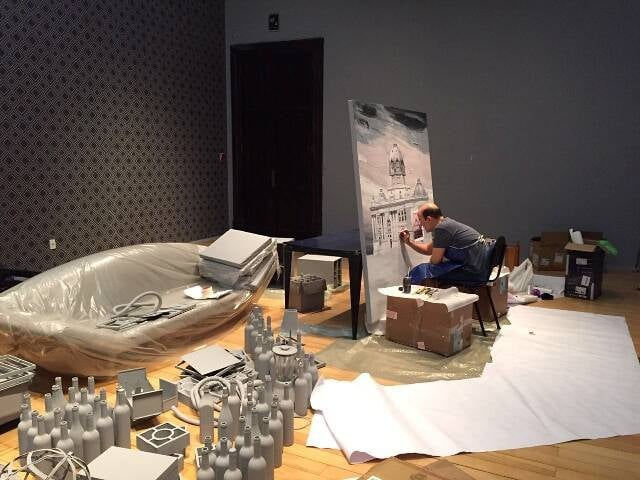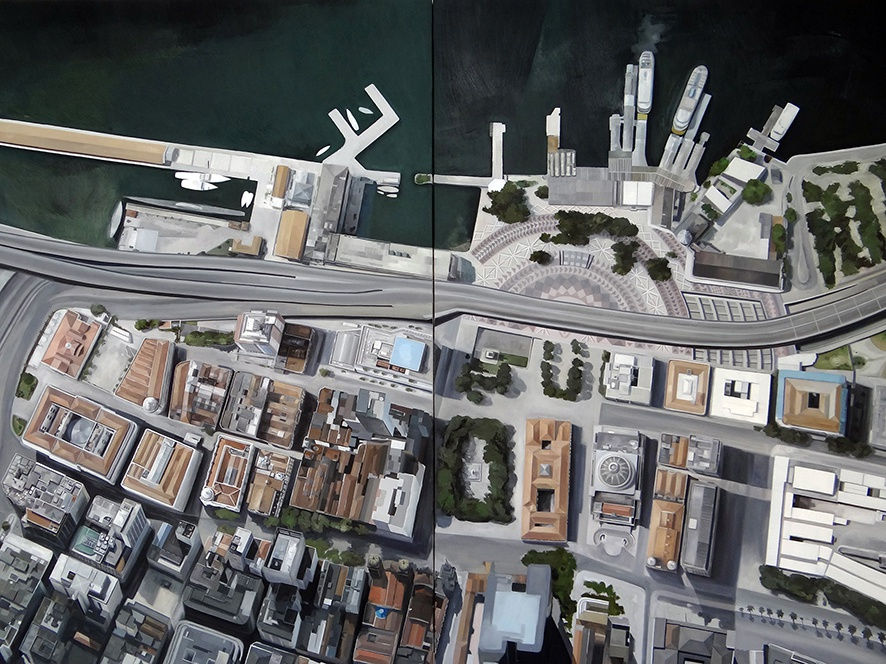The project by Alan Fontes from Minas Gerais, which received the CCBB Contemporary Award, has as its theme the landscape of Rio de Janeiro, contrasting satellite views with his view of the city, where he spent two months to create the installation "Poética de uma Paisagem – Memória em Mutação" (Poetics of a Landscape - Memory in Mutation), composed of paintings and objects.
Defined by Fontes as a “pictorial installation”, the exhibition starts from an aerial [satellite] view of the segment of the historic center of Rio where the CCBB is located. Digitally captured panoramas of this area were reproduced in five paintings – oil and encaustic on canvas: the largest measuring 500 x 250cm and the smallest measuring 70 x 90cm.
The larger painting is based on a 2009 Google Earth image of Praça XV and Candelária. The artist wanted to reproduce this landscape that is no longer the same today to make the viewer realize the speed of time passing. On another screen, Ilha Fiscal appears fictionally distant from the continent, as part of a landscape that moves away and is lost. The Monroe Palace, opened in 1906 and demolished in 1976, also in the center of Rio, appears in another painting, as an example of the administration of urban planning over the decades. Completing the set, two paintings of houses in the demolition stage were based on photos and drawings made by Fontes during his artistic residency at the temporary studio at the Behring Factory in 2015.
"Poética de uma Paisagem – Memória em Mutação" is completed with a set of items found and collected during the two months in which the artist walked around the city, such as a modernist sofa, empty picture frames and frames, rugs, a coat rack, a telephone set, tiles copied from the hydraulic models of the traditional Confeitaria Colombo and a geometric wallpaper, all painted gray, taking the life out of it. “It is as if “a ‘death’ occurred outside the pictorial field”, defines the artist.
The exhibition space is occupied by the plastic research carried out, contrasting two forms of contact with the landscape: distanced contact, made possible by technological tools, and contact experienced by the foreign subject who experiences inhabiting a new urban space and creating a particular form of understanding the new context, its historical configuration and its daily rules.
Bernardo Mosqueira, author of the exhibition's presentation text, summarizes: “... we are reminded by Alan Fontes that we need to constantly learn original ways of seeing and that everything in the world is capable of producing meaning to help us locate ourselves in space and in time.”


